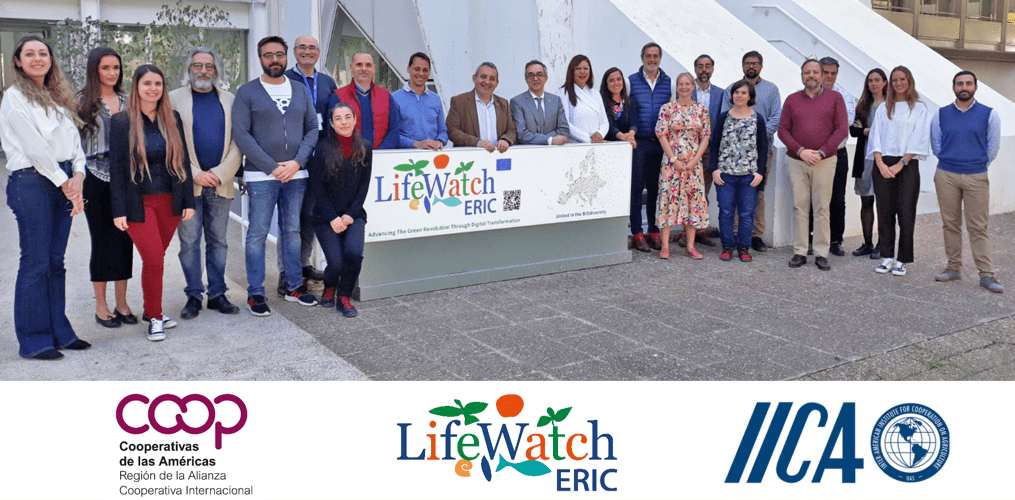
LifeWatch ERIC, the Inter-American Institute for Cooperation on Agriculture (IICA) and Cooperatives of the Americas (COOP) have signed an important general technical cooperation agreement. Its objectives include developing the Cooperative Technological Competence Center and promoting digitalisation processes in agriculture across the Americas, through its cooperatives. This within the context of the green and digital transition, which represents an opportunity to build and consolidate national and international alliances and generate a broad social, environmental and economic impact.
The agreement, signed by Christos Arvanitidis, LifeWatch ERIC CEO; Manuel Otero, General Director of IICA; Graciela Fernández, COOP President; and Danilo Salerno, COOP Regional Director, structure the common vision that these institutions have on the importance and urgency of a green transition, for which it is crucial that there be a harmonious digital transition, creating unified, open, secure, reliable and agile management data spaces to make data a key factor in alliances, management processes and decision-making.
IICA is an organisation with 80 years of experience, whose mission is to stimulate, promote and support the efforts of its 34 member states to achieve their agricultural development and rural well-being through international technical cooperation of excellence focused on the needs of their agri-food systems. The International Cooperative Alliance, founded in 1895, is an organisation that unites, represents and serves cooperatives worldwide, establishing in 1990 its Regional Office for the Americas in San José (Costa Rica), called Cooperatives of the Americas (COOP). Its aim is to promote the repositioning of the cooperative model in the modern economic, political, social and commercial environment.
COOP and the IICA on Agriculture have been developing a ‘Joint Cooperation Program’ since 2019 for the modernisation and digitisation of cooperative services for family farming in the Americas, making family production systems more diversified, respectful of the environment and natural resources, ensuring development, generation after generation, not only of agriculture, production and the economic livelihood of people, but also their own family life. The aim of the programme is that such production systems generate income and genuine employment, while protecting biodiversity and fragile agroecological systems.
The agreement with LifeWatch ERIC reinforces the ‘Joint Cooperation Program’ and connects it with the Common European Agricultural Data Space. It promotes the cooperative model as a key player in local development, as well as an associative solution for access to markets and economies of scale in the agri-food value chain, with favourable environmental management.